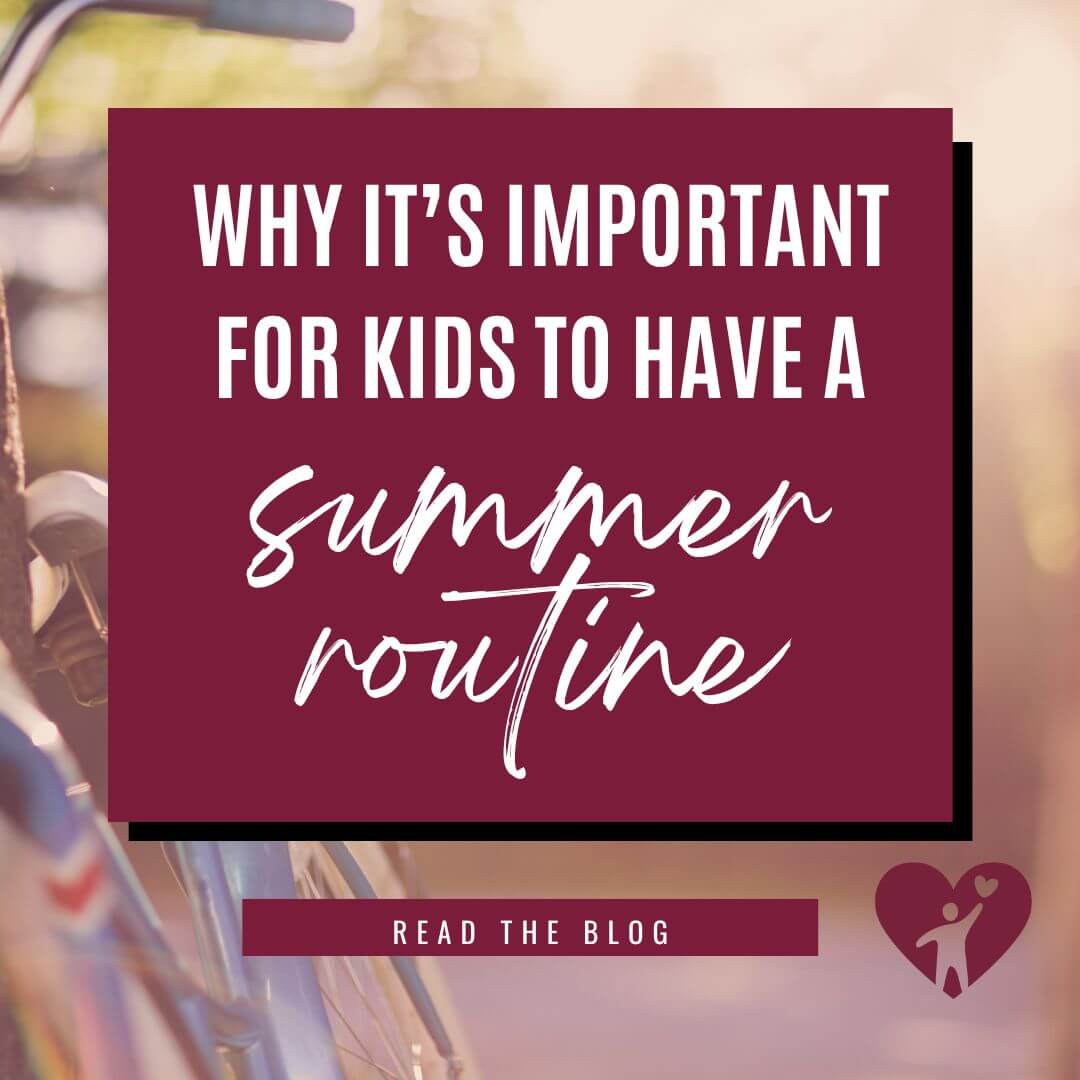-
Why It’s Important for Kids to Have a Summer Routine
- Posted on July 25, 2022
- by admin
- in All Articles, NFSB Blog
- Comments Off on Why It’s Important for Kids to Have a Summer Routine

When school breaks for summer, it’s not uncommon for teens to abandon any kind of schedule. They may stay up late using their phones or gaming systems and sleep half the day away. There tends to be way too much screen time.
While it’s completely normal for kids to relax during summer break, maintaining a certain level of structure can provide physical, mental, and emotional benefits.
“When teens and children get too relaxed with their routine, they often have to go through a major adjustment period to get back on track when they return to school,” said Staela Keegan, licensed clinical social worker (LCSW), licensed clinical alcohol and drug counselor (LCADC), and Clinical Director at Nutley Family Service Bureau (NFSB). “We see a lot of kids struggling in September. Having a routine provides accountability and helps keep kids active and sharp.”Many students who don’t have a routine are tired or become anxious about going back to school. Others lose much of the progress they’ve made academically and behaviorally because they haven’t picked up a book all summer or spent time socializing. Having a little structure to each day can be a big help.
Supporting Kids with ADHD
Teens and children with attention-deficit/hyperactivity disorder (ADHD) need structure to hold themselves together when they have difficulty doing it on their own. Of course, this isn’t just true for people with special needs. Some adults experience weekend depression because they don’t know how to manage their time when they’re not at work.
Many families will give kids with ADHD a “medication holiday” when they’re not in school. While there are opposing views on whether this is the right approach, we encourage parents to look at the child’s or teen’s individual circumstances before making this decision.
“It’s important to keep in mind that ADHD affects more than school performance,” Staela said. “Medication can help kids behave less impulsively, follow rules, and get along better with peers, all of which are important for kids who go to camp, play sports, or have a job. We recommend taking time to weigh the pros and cons before stopping with medication.”
How to Create a Routine that Works
Look for the right balance of structure and flexibility. Maintain a regular bedtime and wakeup time. When kids wake up, make sure they shower, have breakfast, and get dressed. If you want to allow teens to stay up late, that’s fine, as long as they get up the next morning to start their day at the normal time. Accountability is important, but so is flexibility.
“Parents often make the mistake of being too rigid with what they expect to happen,” Staela said. “Involve the child in the discussion. In a typical family session, we’ll have a conversation with the parents and child to come up with a schedule that’s agreeable to everyone and make sure the activities are enjoyable and productive.”
Remember that no schedule needs to be set in stone. Kids won’t hit the mark every day, and that’s okay. The most important goals are to make sure your child or teen exercises their brain and body each day, understanding that some days will be more active than others.
Monitor their screen time to avoid neck pain and weight gain. Prepare nutritious meals. Make time to go outside and play. Encourage kids to socialize with friends. Of course, if their school provides summer homework, add that to the schedule as well.
Summer break should be fun and we need to let kids be kids. At the same time, a little structure and a regular routine are good for their mental and physical health and help them prepare for a return to school in September!
If you enjoyed this article please consider sharing it!

















